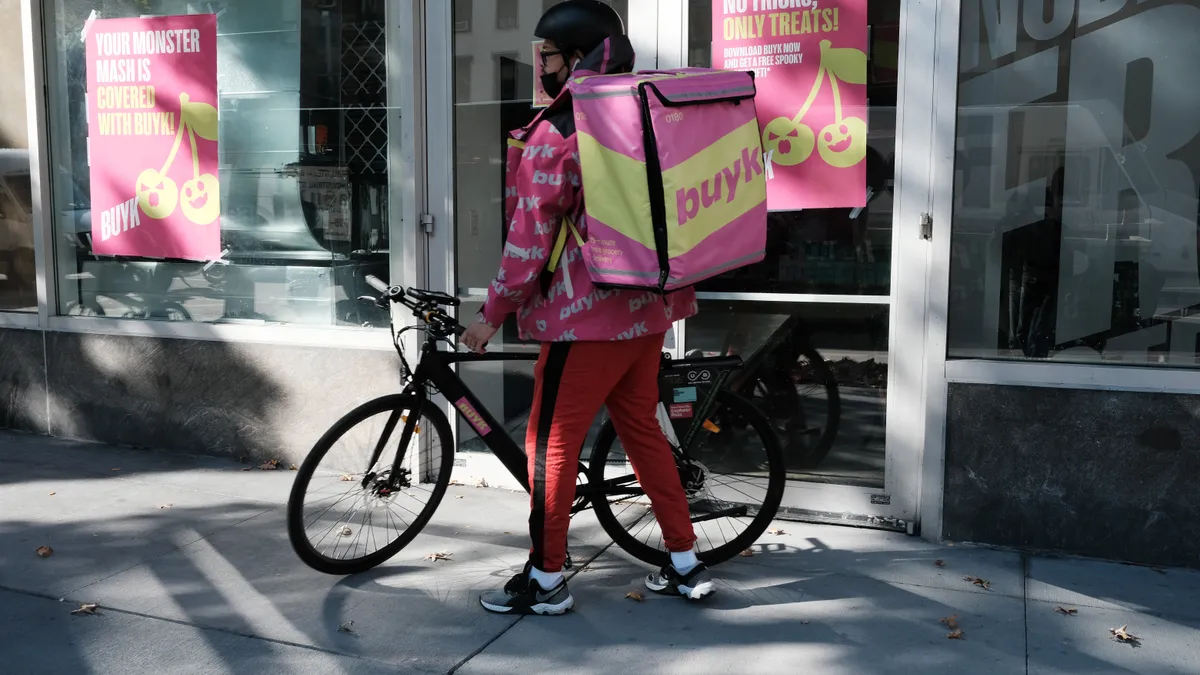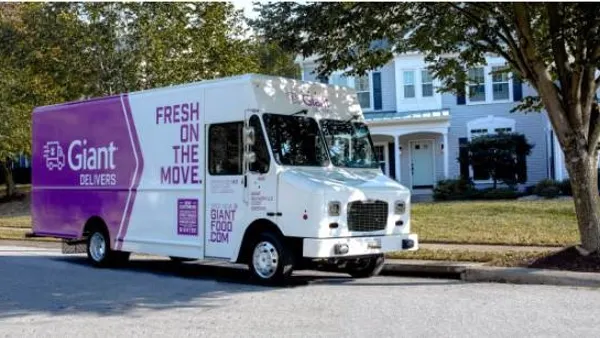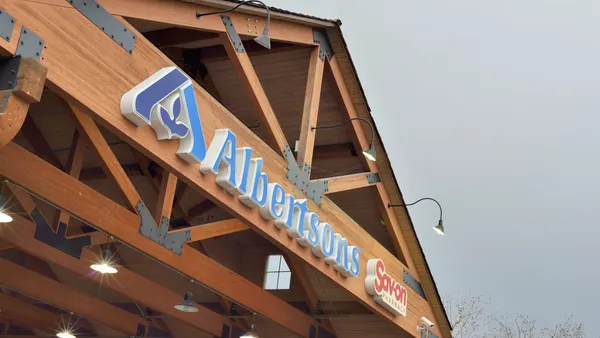Dive Brief:
- City officials in Europe and the U.S. are pushing back against rapid grocery delivery services, noting that their dark stores and armies of couriers are disrupting residential neighborhoods and may be violating zoning rules.
- In the Netherlands, Amsterdam and Rotterdam recently instituted a one-year freeze on dark store openings, Reuters reported. In New York City, council member Gale Brewer has called on the city to investigate whether rapid grocery delivery companies are following zoning regulations.
- The early pushback from cities indicates what could be a significant hurdle for these delivery startups, given their aggressive expansion plans.
Dive Insight:
The criticism public officials are leveling against ultrafast delivery companies stems from the budding industry’s unique operating model.
To offer doorstep service in 15 minutes or less, companies like Getir, Gorillas and Gopuff have to put their dark stores close to where consumers live. In dense urban areas, this often means posting up in former retail storefronts located in residential neighborhoods where citizens aren’t accustomed to the bustle of activity that comes with loading and delivering goods.
In Amsterdam and Rotterdam, city officials cited public complaints against rapid grocery delivery services when leveling their year-long moratorium on dark store openings.
"Everybody knows them by now: darkened windows, disruption to the flow of traffic in shopping streets, noise from loading, reckless bike delivery people and nuisance from the waiting drivers," said Rotterdam city council woman Roos Vermeij in a statement reported by Reuters.
Officials are arguing these dark stores operate primarily as warehouses, and may be in violation of zoning ordinances for this reason. Former Manhattan borough president Brewer argued as much in a letter to city commissioners last October, while Paris’ deputy mayor for urban development recently said startups are essentially setting up warehouses without permission.
Officials and local residents are also concerned that rapid delivery companies could put bodegas and neighborhood grocers out of business. In New York, the Bodega and Small Business Group and the United Bodegas of America have pressed the city to take action against delivery startups, citing zoning rules and an unfair advantage due to the troves of investor cash they’ve brought in.
Reports have noted that the rapid expansion of these delivery services and ensuing pushback from officials echoes a similar tug-of-war that unfolded when Uber and Airbnb were scaling up their businesses. In both instances, these companies operated new models that fell into regulatory gray areas and disrupted established industries.
Ultrafast startups have said they’re working with city officials to ensure they’re in compliance with local regulations. They also point to the convenience they offer consumers and the fact that they serve as an outlet for local brands.
“Quick commerce can amplify local brands and help them serve customers they wouldn’t otherwise have been able to reach,” Ashwin Wadekar, director of global strategy at Gorillas, wrote in an op-ed on food tech site Hngry.com
Several rapid delivery companies now operate in New York, including the industry’s largest player, Gopuff, and a few have revved up service in markets like Chicago, Boston and Los Angeles.
So far, Amsterdam and Rotterdam appear to be the only cities that have taken legislative action aimed at curbing the grocery delivery startups. But given their aggressive expansion plans and the concerns they’re spawning so early in their growth cycle, grocery delivery startups and city officials may very well be on a collision course.











